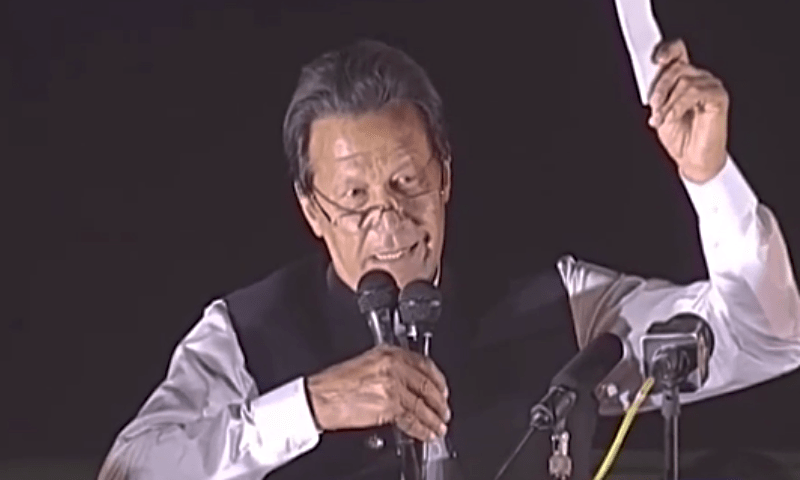
All You Need to Know About the Cipher Case
In a shocking turn of events, former Prime Minister Imran Khan and ex-Foreign Minister Shah Mahmood Qureshi have been sentenced to 10 years in jail in what is now widely known as the cipher case. This high-profile case has been a focal point of controversy, stemming from allegations of mishandling a diplomatic document that purportedly contained a threat from the United States.
The saga began in March 2022 when Imran Khan, during a Pakistan Tehreek-e-Insaf (PTI) rally, brandished a letter claiming foreign interference aimed at toppling his government. This set off a chain of events, including a no-confidence motion gaining momentum amidst accusations of foreign meddling.
Despite PTI’s claims of an international conspiracy, Imran was successfully ousted through a no-confidence vote in April 2022. The origins of the scandal trace back to a farewell lunch in March 2022 attended by US officials, including Donald Lu and Asad Majeed Khan. Leaked audios in September 2022 revealed Imran instructing his secretary to emphasize the threat without explicitly naming any country.
The Intercept later published the alleged text of the diplomatic cipher, exposing US objections to Pakistan’s stance on the Ukraine war. The Federal Investigation Agency (FIA) registered an FIR against Imran and Qureshi under the Official Secrets Act in August 2023.
A special court was established for in-camera proceedings, but the Islamabad High Court declared the initial proceedings illegal in November. The case resumed in December after rectifying the legal errors. Despite the Supreme Court approving post-arrest bail for Imran and Qureshi in December, citing a lack of incriminating material, they remained incarcerated due to other cases.
A stay order on in-camera proceedings, issued until January 11, was withdrawn, allowing fresh witness statements. Key figures, including former principal secretary Azam Khan and ex-foreign secretary Sohail Mehmood, recorded statements in January. During the trial, the special court faced challenges, including the appointment of new defense counsel due to the absence of the defendants’ lawyers.
Imran, in particular, showed reluctance to appear before the judge, while Qureshi appeared in court a day before the 13-hour-long cross-examination of all 25 prosecution witnesses concluded. The defense’s alleged tactics to delay the trial prompted concerns from the FIA prosecutor.
The special court, despite PTI leaders expressing a lack of confidence in Judge Zulqarnain, dismissed the petition. Imran and Qureshi were handed a questionnaire under Section 342 of the Code of Criminal Procedure, with Imran claiming ignorance of the cipher’s whereabouts during his recorded statement.
In a shocking culmination, Judge Zulqarnain announced a 10-year sentence for both Imran and Qureshi, just nine days before the upcoming general elections. Qureshi protested that his statement was not recorded, and in response, PTI decided to challenge the verdict in the Islamabad High Court.
The case, entangled with allegations of communicating classified information under the Official Secrets Act, marks a historic moment as Imran Khan becomes the first prime minister in Pakistan’s history to be removed through a no-confidence vote. The underlying US objection in the diplomatic cipher concerning Pakistan’s neutral stance on the Ukraine crisis forms the basis of Imran’s persistent claims of a conspiracy against his government.







